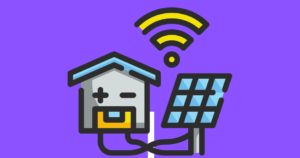There are many different network servers, each with its specific functions. This article will look at the most common types of servers and their purposes.
Today, A network server is a powerful computer that provides various shared services to network workstations and other servers. Shared resources include disk space, hardware access, and email services. A “network server” can be any computer. However, the function performed by the computer distinguishes a server from a workstation, not the hardware.
A workstation is any computer used by an individual to execute their job obligations. In contrast, a network server is any computer that gives users access to shared software or hardware resources. Let’s get in and look at some of these servers and how they function
File Server
The first type of server is the file server. As its name suggests, a file server is responsible for storing and sharing files within a network. It can hold anything from documents and images to music and videos.
File servers usually have large storage capacities and high-speed connections to ensure that users can access the files they need quickly and efficiently.
Print Server
Another common type of server is the print server. As you might guess, a print server is responsible for sharing printers within a network. This type of server is particularly useful in office environments where multiple users need to be able to print documents. Print servers are typically connected to several different printers and can be configured to allow or deny access to specific users.
Application Server
An application server is a computer that also provides network access to software applications. Application servers are often used in conjunction with database servers, as they need access to databases to function correctly.
Common examples of software applications that are provided by application servers include web-based email, online shopping carts, and customer relationship management (CRM) systems.
Database Server
A database server is a computer that is used to store databases. Databases and makes them available over a network.
Database servers are an essential part of many business applications, as they allow businesses to store and retrieve data quickly and efficiently. Common examples of databases that are stored on database servers include financial records, customer information, and inventory data.
FTP Servers
A file transfer protocol (FTP) server is a computer that allows users to upload and download files over a network. FTP servers are often used to transfer large files, such as images and videos. They can also be used to allow multiple users to share files.
Email Server
An email server is a computer that stores and manages email accounts. Email servers are responsible for delivering emails to the correct recipients and keeping track of messages that have been sent and received. It can also provide access to email accounts from different devices, such as smartphones and tablets.
Real-Time Communication Servers
A real-time communication (RTC) server is a type of computer that provides real-time voice and video communication services. RTC servers are often used in call centers and online meeting rooms. They can also be used to deliver video conferencing services.
DNS Server
When considering the DNS server, which is a type of computer that translates domain names into IP addresses, DNS servers are in charge of converting website domain names into IP addresses that computers can use to connect to them. They provide other types of information about domains, such as email addresses.
Telnet Servers
A Telnet server is a type of computer that allows users to connect to it and execute commands. Telnet servers are often used to provide access to remote systems, such as servers and routers. In addition, it will enable multiple users to share a single system.
Web Server
A web server is a type of computer that stores websites and provides access to them over a network. Web servers are responsible for delivering the content of websites to users. They can also be used to provide other services, such as email and file transfer.
SharePoint Server
A SharePoint server is a computer that provides access to the SharePoint collaboration platform. SharePoint servers are responsible for storing and managing the data that is used by the SharePoint platform. They also serve other functions, such as allowing email and file transfer.
Proxy Server
A proxy server is a type of computer that acts as an intermediary between computers and networks. Proxy servers are often used to provide security and privacy features, such as content filtering and anonymous surfing. They can also be used to improve performance by caching frequently requested resources.
VPN Server
A VPN server is a type of computer that allows users to connect to it using a VPN client. VPN servers are often used to provide remote access to corporate networks. Furthermore, they provide access to private networks, such as home networks.
Application Server
An application server is a type of computer that provides a platform for software applications to run on. For example, application servers are often used to provide access to web-based applications.
They can also be used to provide other services, such as email and file transfer. Application servers typically include a web server, database server, and application server.
Network Attached Storage Server
A network-attached storage (NAS) server is a type of computer that stores data and makes it available over a network. NAS servers are often used to store large amounts of data, such as video and audio files. They can also be used to provide access to files from different devices, such as smartphones and tablets.
TFTP Server
A TFTP server is a type of computer that allows users to connect to it and transfer files. TFTP servers are often used to provide access to files from different devices, such as routers and switches. They can also be used to allow multiple users to share files with each other.
NFS Server
An NFS server is a type of computer that allows users to connect to it and access files. NFS servers are often used to provide access to files from different devices, such as computers and smartphones. They can also be used to allow multiple users to share files.
SMB Server
An SMB server is a type of computer that allows users to connect to it and access files. SMB servers are often used to provide access to files from different devices, such as computers and smartphones. They can also be used to allow multiple users to share files with each other.
RADIUS Server
A RADIUS server is a type of computer that allows users to connect to it and authenticate themselves. ISPs and VPN providers often use RADIUS servers to authenticate users. They can also be used to enable multiple users to share files.
DNS Server
A DNS server is a type of computer that allows users to connect to it and resolve domain names. ISPs and VPN providers often use DNS servers to access their networks. They can also be used to allow multiple users to share files.
DHCP Server
A DHCP server is a type of computer that allows users to connect to it and receive an IP address. ISPs and VPN providers often use DHCP servers to access their networks. They can also be used to allow multiple users to use the same IP address.
Web Server
Last but not least, we have the webserver. A web server is a type of computer that delivers web pages to users. Any time you type in a URL in your web browser, you are requesting a web page from a web server. Web servers typically use special software (known as “web server software”) to process requests from browsers and deliver the requested pages.
IPAM Server
An IPAM server is a type of computer that allows users to connect to it and manage IP addresses. ISPs and VPN providers often use IPAM servers to access their networks. They can also be used to allow multiple users to share files.
Conclusion
As you can see, there are many different types of servers, each with its specific function. In most cases, the type of server you need will depend on the particular needs of your business.
So there you have it! These are the most common types of network servers that you’ll come across. Each has its purpose and function.
Now that you know the different types of network servers, which one will you choose for your needs? Let us know in the comments below! You can check out our other blog posts for more helpful tips and information on all things networking!




